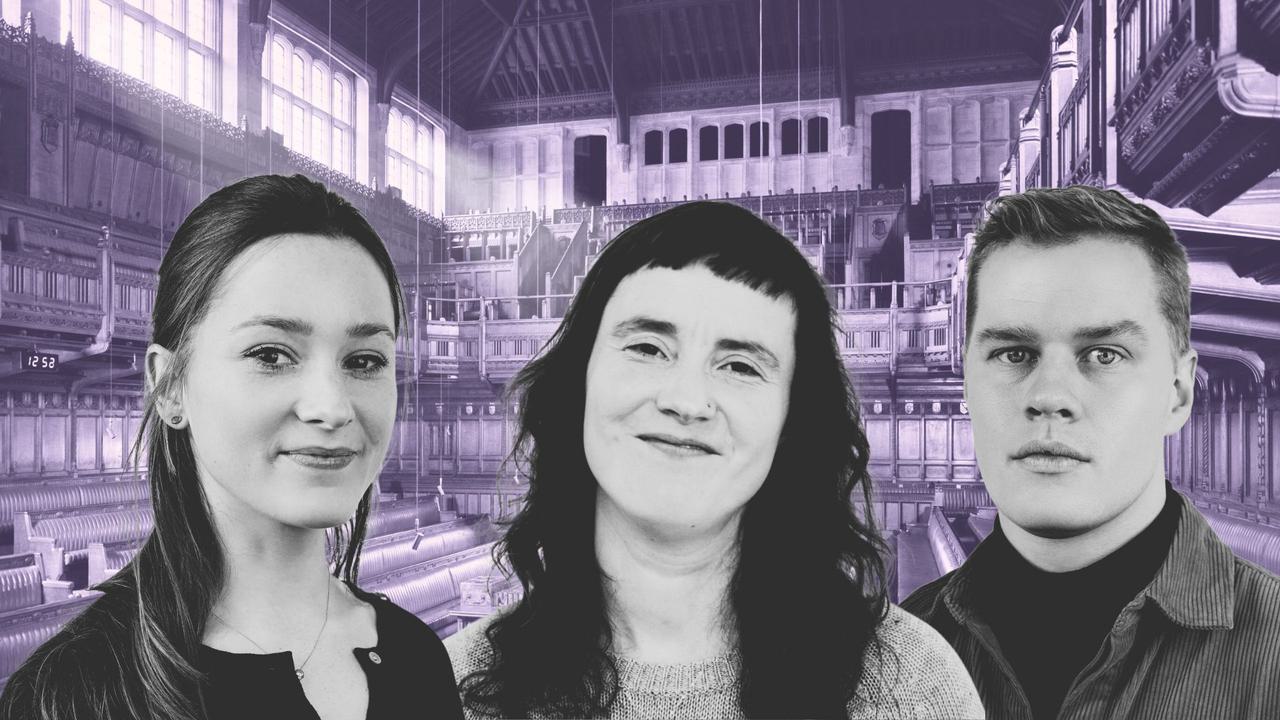
How we did it: putting together the Silenced Stories debate
Using parliamentary privilege to reveal what the powerful didn't want us to know

One brisk day in April 2023, I sat in a café prepping for a job interview. I had my sights set on a role at TBIJ leading the Enablers team, which focuses on the UK’s role in dirty money.
There was just one problem. I needed to come up with pitches about the specific beat: how UK lawyers, advisers and other professionals enable wrongdoing by the global super-rich. I’d worked on corruption before, but I felt a bit rusty. I brainstormed a dozen ideas, fleshing out two or three. They were solid pitches, but not exactly reinventing the wheel.
Anything else, the panel asked in the interview? I ad libbed through a couple of other points. Finally, I landed on a few words in my notes. “Oh yeah! You know how journalists get legal threats all the time?” I was thinking of letters I’d recently received. They’d arrived during the process known in journalism as the “right to reply”, where you go to the subjects of your reporting with your findings to give them a fair chance to respond.
Any journalist who’s reported on serious wrongdoing will tell you how long some responses get. Intended to swamp the reporter at the last moment, they frequently take on a bombastic, aggressive tone – and sometimes they’re sent by big name lawyers. I’d logged hours of overtime fending off letters recently, point by pedantic point.
And, of course, there was always the fear that – even if you’ve reported the story responsibly – you can still get sued and saddled with crippling costs. This is the essence of Strategic Lawsuits Against Public Participation (SLAPPs). I knew TBIJ received its share of threats, and had recently been sued over a story in a case that campaigners described as a SLAPP.
“My guess is that sometimes these threats work, and the publication backs down even though the story is correct,” I said. “Who knows what we don’t know because of these threats? Why don’t we speak to journalists, find out about all the stories they killed, and get MPs to read the stories out in Parliament?”
I was thinking of the fact that parliamentarians can’t get sued for what they say in the House because of a special legal protection known as privilege.
Franz Wild, TBIJ’s editor, visibly perked up. Cogs turned. “You know,” he said with a look I would learn meant he was seriously considering something. “I think that could actually work.”
Finding the cases
I got the job. There was a moment early on where I recalled the interview and realised I’d set myself up for a pretty insane task – but it felt exciting, so I pitched the idea properly and TBIJ’s senior editors gave it the greenlight.
There’d be a lot of risks involved. People who’ve been legally threatened don’t tend to be the quickest to share their stories. Plus, we needed a dedicated backbench parliamentary debate, but we didn’t know of any other group of journalists who’d tried to instigate one in this way. So there was no template.
Luckily I now had TBIJ’s Enablers team around me, including the impossibly energetic impact producer Lucy Nash, and the talented reporter Ed Siddons. We started drawing up ideas for where to find what we were by now calling Silenced Stories.
Lucy took the lead making a list of local news outlets across the country; we figured smaller newsrooms are resource-poor and frequently outgunned by lawyers for the wealthy. We also added reporters across the national and trade press who exposed wrongdoing as part of their jobs.
But Lucy had been involved with anti-SLAPP advocacy for several years, through the UK Anti-SLAPP Coalition, of which TBIJ is a member. So she also knew ordinary citizens who’d been affected. Sometimes, all it takes is a critical review on Google or a strongly worded Facebook post, and people who have nothing to do with journalism find themselves threatened by lawyers.
In all, Lucy, Ed and I contacted hundreds of people, and spoke in-depth to more than 30. From my perspective, we had to ensure we weren’t putting people at high risk of legal jeopardy just by telling us about the threats. After all, we were potentially dealing with a lot of litigious individuals and companies. Many people don’t know libel laws cover not only material published on a news website, but also anything you send to even just one recipient (except where you work for the same organisation, say, and a few other exceptions).
We can’t share the legal advice we received, but we decided we’d need to consider and document the public interest in every substantial act of information-sharing between us and the participants, because a strong public interest is a defence. We couldn’t completely eliminate all risk in the process, and some people felt they couldn’t ultimately participate, which was gutting for them and us.
One publication withdrew a story about international corruption allegations because it had been dragged through the courts recently. Another story about alleged sexual abuse risked breaching a court order, while we had the sense from some reporters that they supported the debate – but participating felt like asking for trouble.
Still, a number of brave souls did take part. We knew we’d need to be careful sharing these stories with MPs, because the act of briefing a small number of parliamentarians could also be considered a “publication”, and in theory subject to a legal claim. There is a protection for sharing material with the appropriate authorities, which in this case meant MPs, but we’d need to do our due diligence.
We assessed each story in turn, to satisfy ourselves that the story was dropped, delayed or substantially amended because of a legal threat, rather than doubts over the reporting or any other factor. We weighed the public interest of each story, and had several formal meetings to confer and document our decisions. We made a shortlist, wrote up a briefing for MPs, and fully fact checked it before finally signing it off.
All we needed now was a parliamentary debate.

Securing the debate
The UK parliament is renowned for its fiery debates. The
entire setup is designed to foster a confrontational style, right down
to the architecture of the chamber where two “sides” sit opposite one
another. Overseeing its reconstruction after the Blitz, Churchill
insisted on retaining the adversarial layout. (It’s also rumoured
Churchill requested to be close enough to his opponent to feel their
saliva on his face, but TBIJ has a strict fact-checking process, and
Churchill’s desire to be festooned with spit is unconfirmed)
What many people don’t realise is that politicians from different parties often work collaboratively behind the scenes. Work towards ending SLAPPs falls squarely into this category; it’s a cross-party issue that unites MPs.
I’ve spent considerable time building relationships with MPs and peers, as well as forging a productive partnership with the APPG on Anti-Corruption and Responsible Tax. This ended up playing an instrumental role in securing a debate for Silenced Stories.
With the APPG’s substantial help, we organised a briefing on what we’d uncovered. The theme of suppressed stories – secrets few people are privy to – sparked immediate interest.
We liaised with the APPG’s senior parliamentary researchers to gather signatures to get the proposed debate approved. This involved calling and convincing MPs one by one, focussing on those already passionate about free speech and anti-corruption. The time we put in paid off. Not only was the debate approved, but we were at the top of the list.
We’d already done a huge amount of work to prepare. But we expected to have about a month to put our briefings through their final stages – ample time to complete the essential journalistic processes, including offering the right to reply to the lawyers, companies and individuals implicated in some of the threats we documented.
However, MPs were so keen to hold the debate that it was scheduled almost immediately. We had a week.
The TBIJ machine jumped into gear. Clock ticking, we moved quickly to write letters, obtain responses, and finalise a plan for what we wanted to publish.
Debate day was exciting but oddly stressful. Eleanor and I went to Parliament, where we sat in the public gallery and watched the event unfold in real time. We’d assigned different MPs to share specific stories, providing them with detailed backstories and ensuring they were fully briefed on the current regulatory and legislative landscape.
Back at the TBIJ office, we set up what we called a “war room,” a team of TBIJ reporters tasked with live-reporting the proceedings. Reporting on parliamentary debates is protected under “qualified privilege,” a legal safeguard that shields journalists from defamation claims, provided the coverage is fair, accurate, and published without malice. This allowed us to report what was said in the chamber and finally get the Silenced Stories out into publication, where they belonged.

As the first speaker rose, the room fell silent. A year’s reporting had led to the next two hours. Whether the project sank or swam was in the hands of Parliament.
One by one, MPs from across the House stood to read out the stories silenced by legal threats: victims of Mohamed Al-Fayed who dared not name their abuser before his death; outlets threatened for exposing the Post Office scandal years before it erupted into public consciousness; reporters following leads about sexual abuse, stopped before they could even draft a story.
But when Rachel Gilmour stood, draped in a fur stole, to read one story in particular, a shiver ran through the TBIJ office. She began to read the story of Carrie Jones, an ordinary woman whom TBIJ interviewed many months earlier about her experience of defamation lawyers.
Jones might well have lived her entire life without ever encountering a libel lawyer. She isn’t a journalist. Nor is she wealthy or well-connected. But in 2019, her brother Danny Butcher, an army reservist, died by suicide.
Butcher paid to attend a controversial “wealth creation” course run by Samuel Leeds, a “wealth creator” whose courses promised “financial freedom” through property investments, Gilmour said. He attempted to secure a refund before he took his own life. Jones freely admitted her brother had problems – his mental health was suffering, and he was in debt before joining the course – but she couldn’t shake questions around the months leading up to his death.
Jones was concerned: Leeds’ courses are still running, but she couldn’t find any regulator or government body to which she could complain. Others who had joined Leeds’ courses had serious complaints too. Unwilling to stay silent, she gave interviews to journalists and appeared on Youtube channels to ask the questions publicly that, she felt, Leeds had failed to answer in private.
Jones received a solicitor’s letter warning that, if she continued, she could face legal action, Gilmour said. Jones wasn’t alone. Others had also received legal letters for speaking out about Leeds. But Jones had no lawyers to write back, no friends in the media to stay on her story. But here, after years of seeking answers, she saw that somebody in power cared.
Nothing will ever alter or lessen Jones’ loss, but there in that moment, her story had been recognised. A spokesperson for Samuel Leeds told TBIJ that Butcher’s death was a “tragedy” but that our report was one-sided. They said: “Our business and founder were subjected to a campaign of abuse and sustained attacks, including unwarranted defamatory and even obscene and deeply personal publications.” Gilmour reflected some of their response in her speech, which is the fair thing to do. We’re pleased Jones’s questions – far from being silenced – are now on the parliamentary record forever.
Victories aren’t easy to come by in investigative reporting. Stories can vanish without a ripple. But proving to someone that their grief wasn’t in vain felt important. The months of work had been worth it and Carrie’s tenacity had, in some small way, paid off. “What a brave woman,” Gilmour said.
During the debate Siân Berry, a Green Party MP, addressed Heidi Alexander, then the justice minister, directly, asking: “Will the minister look at bringing in new action to put in a robust, broad and comprehensive bill to prevent [lawfare and SLAPPs]?” But while Alexander acknowledged the issue poses a grave threat, she deemed it too complex to tackle within this parliamentary session.
Her reluctance stood in stark contrast to Sir Keir Starmer's earlier pledge to protect journalism, which he called “the lifeblood of our democracy”. In a Guardian column, Starmer promised to “tackle the use of [SLAPPs] to protect investigative journalism, alongside access to justice.” But, in light of Alexander’s comments, the promise seemed little more than lip service.
Since the debate, Alexander has moved to another government role in a reshuffle, and Sarah Sackman is new justice minister. We hope she’ll pick up the cause with urgency. In the meantime the project isn’t over.
Reporters: Eleanor Rose, Lucy Nash and Ed Siddons
Enablers Editor: Eleanor Rose
Deputy editors: Chrissie Giles & Katie Mark
Editor: Franz Wild
Production editor: Frankie Goodway
TBIJ has a number of funders, a full list of which can be found here. None of our funders have any influence over editorial decisions or output.
-
Area:
-
Subject:







